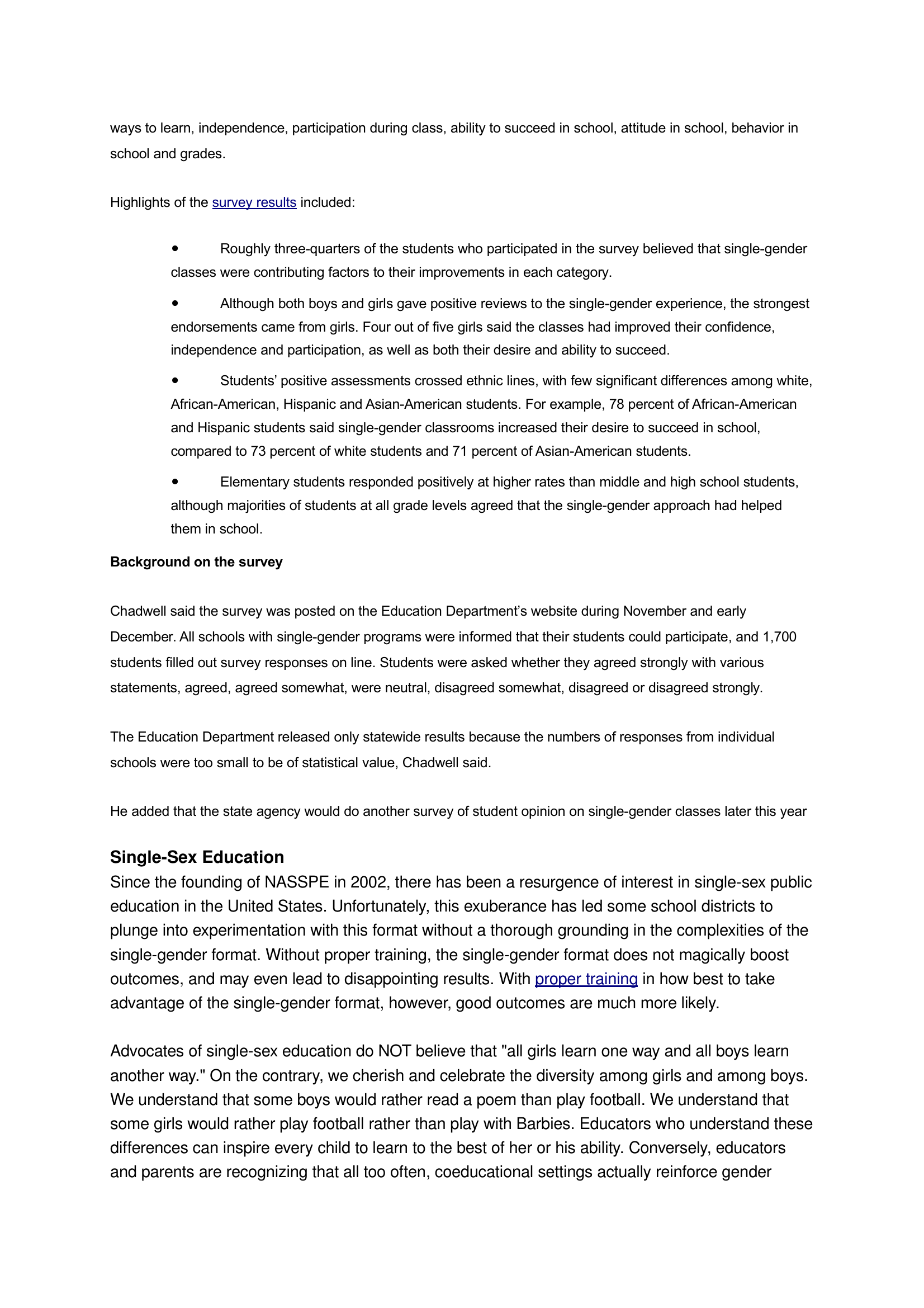Débat Single Sex School
Publié le 15/05/2013

Extrait du document
«
ways to learn, independence, participation during class, ability to succeed in school, attitude in school, behavior in
school and grades.
Highlights of the survey results included:
· Roughly three-quarters of the students who participated in the survey believed that single-gender
classes were contributing factors to their improvements in each category.
· Although both boys and girls gave positive reviews to the single-gender experience, the strongest
endorsements came from girls.
Four out of five girls said the classes had improved their confidence,
independence and participation, as well as both their desire and ability to succeed.
· Students’ positive assessments crossed ethnic lines, with few significant differences among white,
African-American, Hispanic and Asian-American students.
For example, 78 percent of African-American
and Hispanic students said single-gender classrooms increased their desire to succeed in school,
compared to 73 percent of white students and 71 percent of Asian-American students.
· Elementary students responded positively at higher rates than middle and high school students,
although majorities of students at all grade levels agreed that the single-gender approach had helped
them in school.
Background on the survey
Chadwell said the survey was posted on the Education Department’s website during November and early
December.
All schools with single-gender programs were informed that their students could participate, and 1,700
students filled out survey responses on line.
Students were asked whether they agreed strongly with various
statements, agreed, agreed somewhat, were neutral, disagreed somewhat, disagreed or disagreed strongly.
The Education Department released only statewide results because the numbers of responses from individual
schools were too small to be of statistical value, Chadwell said.
He added that the state agency would do another survey of student opinion on single-gender classes later this year
SingleSex Education
Since the founding of NASSPE in 2002, there has been a resurgence of interest in singlesex public
education in the United States. Unfortunately, this exuberance has led some school districts to
plunge into experimentation with this format without a thorough grounding in the complexities of the
singlegender format. Without proper training, the singlegender format does not magically boost
outcomes, and may even lead to disappointing results. With proper training in how best to take
advantage of the singlegender format, however, good outcomes are much more likely.
Advocates of singlesex education do NOT believe that "all girls learn one way and all boys learn
another way." On the contrary, we cherish and celebrate the diversity among girls and among boys.
We understand that some boys would rather read a poem than play football. We understand that
some girls would rather play football rather than play with Barbies. Educators who understand these
differences can inspire every child to learn to the best of her or his ability. Conversely, educators
and parents are recognizing that all too often, coeducational settings actually reinforce gender .
»
↓↓↓ APERÇU DU DOCUMENT ↓↓↓
Liens utiles
- Les États-Unis : unilatéralisme et multilatéralisme, un débat international
- Modernisation et débat démocratique
- Est-ce que les réseaux fournissent de bonnes conditions pour un débat démocratique ?
- débat pour ou contre la colonisation
- ANALYSE DE DOCUMENTS : LA MONDIALISATION EN DÉBAT


